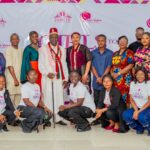Following a gruesome civil war that left more than a million civilians dead, the Yakubu Gowon military administration introduced the National Youth Service Corps (NYSC) in May 1973. Proposed as a means to “reconstruct, reconcile and rebuild” a country fractured by the bitter conflict, the post-tertiary scheme would see Nigerian graduates of universities and polytechnics, colloquially called corpers, deployed to places outside of their states of origin.
Beyond its immediate goal of national reconstruction, the NYSC was hailed as a strategic response to the growing secessionist sentiments that had begun to take root in post-independence Nigeria. Outside of the Republic of Biafra in the country’s east, agitations for self-governing nations were also springing up across other regions, some of which would later coagulate into movements. Notable separatist movements include The Republic of Oduduwa, among the Yoruba tribes; and Arewa Republic, in the north.
In the years since its inception, the NYSC has sought to repair these ethnic tensions and forge unity in the country. Except on grounds of age and physical disability, Nigerian graduates are required to complete the one-year stint as a prerequisite for employment in any governmental establishments and in the private sector.
However, the programme has met with criticism amid its inadequate allowance and security concerns. Quite a number of corps members have been victims of kidnappings and wanton killings, particularly in regions prone to conflicts. What was originally created to foster national unity has come under scrutiny as Nigerians question the relevance of the scheme.
Younger Nigerian graduates are starting to shun the scheme, reflecting a broader disillusionment in national programmes. “I’m not interested in serving because the country has never served me,” says Emmanuel, who recently graduated from the Federal University of Technology in Akure. “I am not interested in anything pertaining to this country and will relocate abroad the first chance I get.” Zainab, another fresh graduate, echoes this same sentiment. “I’d rather apply for a Master’s degree abroad immediately than waste one year collecting 33,000 from the government,” she notes.
The discontent has even spread to the legislative houses. In 2021, Hon. Awaji-Inombek Abiante, proposed a bill for the NYSC to be scrapped over concerns of insecurity and the failure of firms to retain corps members after their service year. Despite these grave concerns, the government maintains that the benefits of the NYSC outweigh its flaws.
As in the 1960s, agitations for secession have continued into the present. The Indigenous People of Biafra (IPOB) has sustained a persistent, low-level conflict with the Nigerian government in its quest to restore the defunct Biafra Republic. This and other separatist movements that have also broken out raise profound questions: Is intercultural unity actually lacking in Nigeria? Are these agitators seeking separation because they believe themselves different from the rest of the country, or because they believe that Nigeria is too big and complex to be successfully governed by a single central authority? Or are these movements driven simply by extremism?
In today’s Nigeria, ethnic lines are blurring in homes as people marry across cultural lines, suggesting that the core of these agitations may be rooted more in political and economic grievances than in tribal differences.
With hundreds of thousands of Nigerian graduates enrolling in NYSC each year, the programme has arguably succeeded in fostering intercultural relations in the country. Yet, as it appears, it alone cannot quell the mounting tension and calls for a breakaway republic breaking out across the country. There is only one solution—a meaningful positive transformation in the state of the nation.
The National Youth Service Corps (NYSC) was introduced in 1973 by Nigeria’s Yakubu Gowon military administration following a devastating civil war. Aimed at national reconstruction and unity, the program required Nigerian graduates to serve in regions outside their states. While initially successful in fostering intercultural relations, the NYSC has been criticized for inadequate allowances, security concerns, and its diminished relevance. Disillusionment is growing among younger graduates, with many preferring to seek opportunities abroad instead.
Legislation to possibly scrap the NYSC due to these concerns was proposed in 2021, but the government maintains that the program’s benefits outweigh its flaws. Ongoing separatist agitations, such as those by the Indigenous People of Biafra, raise questions about Nigeria’s ability to maintain national unity. Despite some success, the NYSC alone cannot address the deep-rooted political and economic issues fueling these movements; meaningful national transformation is needed.






